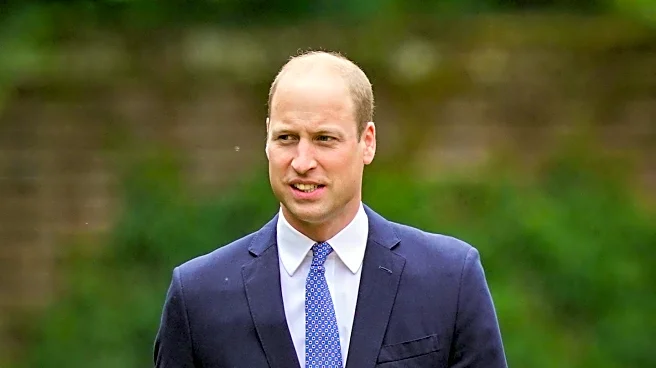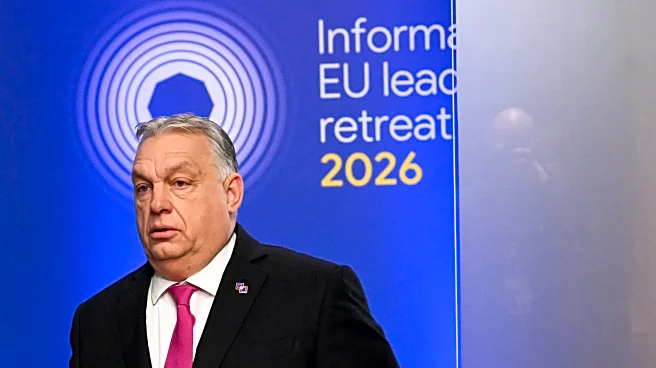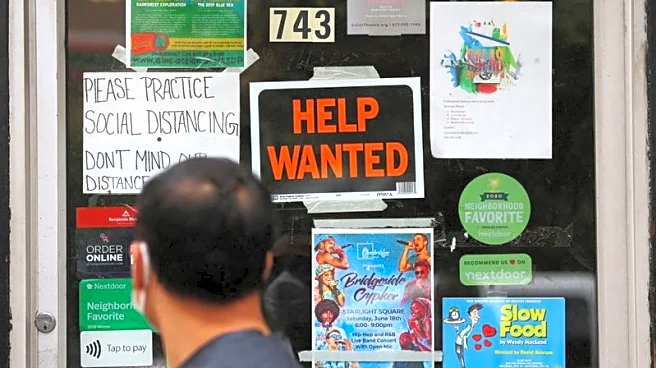What's Happening?
Prince William engaged in a candid conversation with Canadian actor Eugene Levy during the filming of Levy's Apple TV+ travel show, 'The Reluctant Traveler.' The meeting took place at Windsor Castle, where William shared insights into his personal life and the challenges he faces. He expressed how family pressures, rather than royal duties, often overwhelm him. William also reflected on the loss of his grandparents, Queen Elizabeth II and Prince Philip, and the impact of their absence. The conversation touched on the significant changes in his life, particularly the health challenges faced by his wife, Catherine, the Princess of Wales, and his father, King Charles III, who both battled cancer in 2024.
Why It's Important?
This rare glimpse into Prince William's personal life highlights the human side of the monarchy, often perceived as distant and ceremonial. His openness about family pressures and personal loss resonates with many, offering a relatable perspective on the challenges faced by public figures. The discussion also underscores the impact of health crises on families, regardless of status, and the resilience required to navigate such trials. William's candidness may influence public perception of the royal family, fostering a sense of connection and empathy among the public.
What's Next?
The conversation between Prince William and Eugene Levy may prompt further public interest in the personal lives of the royal family. It could lead to increased media attention on how the monarchy balances public duties with personal challenges. Additionally, the openness displayed by William might encourage other public figures to share their personal experiences, potentially shifting the narrative around privacy and public life.
Beyond the Headlines
The interaction between Prince William and Eugene Levy at Windsor Castle reflects a broader cultural shift towards transparency and vulnerability among public figures. This trend may influence how the monarchy engages with the public, potentially leading to more open dialogues about personal and societal issues. The conversation also highlights the evolving role of the media in portraying the human aspects of traditionally formal institutions.












